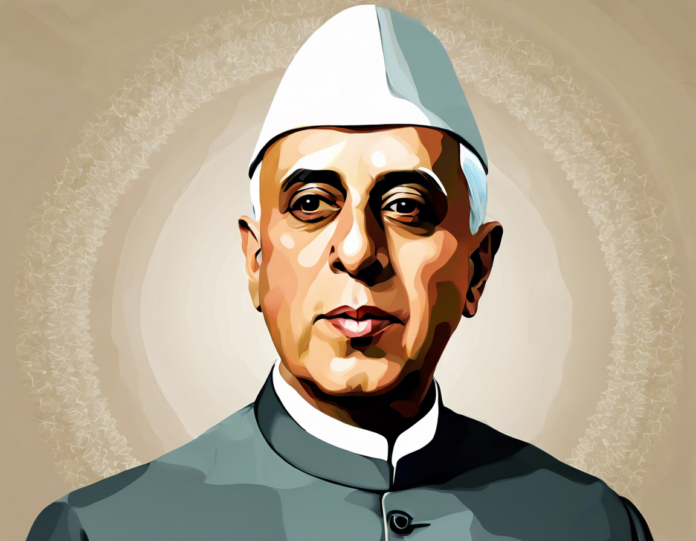Introduction
Pandit Jawaharlal Nehru, the first Prime Minister of independent India, is remembered as a visionary leader who played a crucial role in shaping the nation’s destiny. Nehru’s legacy extends far beyond his political tenure, as he laid the foundation for a modern, progressive, and democratic India. In this blog post, we delve into the life and contributions of Pandit Nehru, exploring his leadership style, vision for India, and lasting impact on the country.
Early Life and Education
Pandit Jawaharlal Nehru was born on November 14, 1889, in Allahabad, India, into a prominent political family. His father, Motilal Nehru, was a renowned lawyer and a key figure in the Indian National Congress. Nehru received his education in India and later at Harrow School in England, followed by Trinity College, Cambridge. He was deeply influenced by the nationalist movement in India and was drawn to the ideas of Mahatma Gandhi, whom he considered his mentor.
Leadership Style
Nehru’s leadership style was characterized by a combination of intellectual vision, pragmatism, and charisma. He was known for his eloquence, statesmanship, and ability to connect with the masses. Nehru’s approach to governance blended idealism with a realistic understanding of the challenges facing India. He emphasized the importance of secularism, democracy, and social justice, laying the groundwork for a pluralistic and inclusive society.
Vision for India
Pandit Nehru envisioned India as a modern, industrialized, and self-reliant nation. He championed scientific temper, technological advancement, and economic development as key pillars of progress. Nehru believed in the power of education to transform society and invested heavily in building a network of schools, colleges, and universities across the country. His vision for India’s future included a strong focus on social welfare, gender equality, and rural development.
Legacy and Impact
Nehru’s impact on India’s trajectory is profound and enduring. He led the country through its formative years, shaping its institutions, policies, and priorities. Nehru’s contributions to nation-building include the establishment of the Indian Institutes of Technology (IITs), the Indian Institutes of Management (IIMs), and the Atomic Energy Commission. His emphasis on diplomacy and non-alignment positioned India as a global player on the world stage.
Challenges and Criticisms
Despite his many achievements, Nehru faced criticism for his handling of certain issues, including the border dispute with China, economic policies that some deemed too centralized, and his approach to the integration of princely states. However, his legacy as a nation-builder and visionary leader remains largely untarnished, with his contributions far outweighing any shortcomings.
Remembering Nehru Today
Pandit Jawaharlal Nehru continues to hold a revered place in the hearts and minds of Indians. His birthday, November 14th, is celebrated as Children’s Day in India, in tribute to his love for children and belief in their potential. Nehru’s speeches, writings, and ideals continue to inspire generations of Indians to strive for a better, more inclusive society.
Frequently Asked Questions (FAQs)
1. What were Nehru’s key achievements as Prime Minister?
– Nehru’s key achievements include leading India to independence, laying the foundations for democracy, strengthening institutions, promoting education, and initiating economic development programs.
2. How did Nehru’s foreign policy shape India’s position on the global stage?
– Nehru’s policy of non-alignment and commitment to peace and diplomacy helped establish India as a leader of the non-aligned movement and a respected voice in international affairs.
3. What was Nehru’s stance on social equality and justice?
– Nehru was a staunch advocate for social equality, gender rights, and land reforms. He believed in building a more egalitarian society through progressive policies and inclusive development.
4. How did Nehru contribute to India’s cultural and artistic heritage?
– Nehru was a patron of the arts and culture, supporting initiatives to preserve and promote India’s rich heritage of music, dance, literature, and architecture.
5. What is the enduring impact of Nehru’s legacy on modern India?
– Nehru’s legacy is felt in India’s democratic institutions, commitment to secularism, emphasis on education and scientific research, and global leadership in the 21st century.

